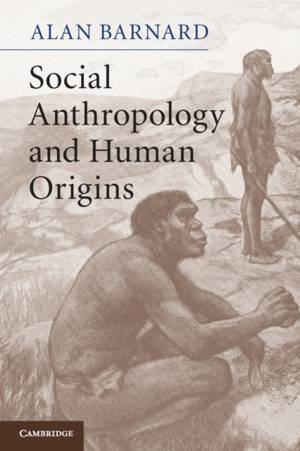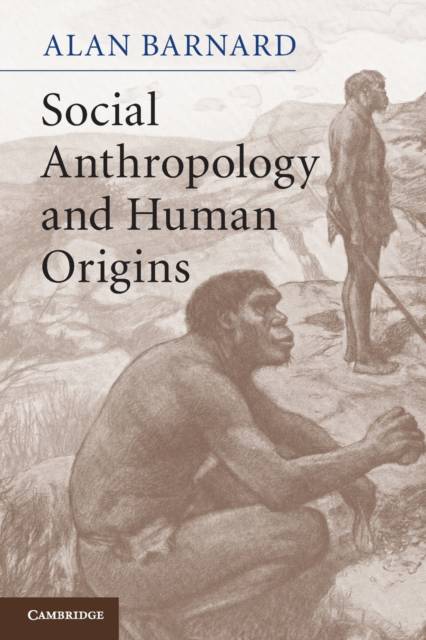
- Afhalen na 1 uur in een winkel met voorraad
- Gratis thuislevering in België vanaf € 30
- Ruim aanbod met 7 miljoen producten
- Afhalen na 1 uur in een winkel met voorraad
- Gratis thuislevering in België vanaf € 30
- Ruim aanbod met 7 miljoen producten
Zoeken
€ 46,45
+ 92 punten
Uitvoering
Omschrijving
The study of human origins is one of the most fascinating branches of anthropology. Yet it has rarely been considered by social or cultural anthropologists, who represent the largest subfield of the discipline. In this powerful study Alan Barnard aims to bridge this gap. Barnard argues that social anthropological theory has much to contribute to our understanding of human evolution, including changes in technology, subsistence and exchange, family and kinship, as well as to the study of language, art, ritual and belief. This book places social anthropology in the context of a widely-conceived constellation of anthropological sciences. It incorporates recent findings in many fields, including primate studies, archaeology, linguistics and human genetics. In clear, accessible style Barnard addresses the fundamental questions surrounding the evolution of human society and the prehistory of culture, suggesting a new direction for social anthropology that will open up debate across the discipline as a whole.
Specificaties
Betrokkenen
- Auteur(s):
- Uitgeverij:
Inhoud
- Aantal bladzijden:
- 196
- Taal:
- Engels
Eigenschappen
- Productcode (EAN):
- 9780521749299
- Verschijningsdatum:
- 17/03/2011
- Uitvoering:
- Paperback
- Formaat:
- Trade paperback (VS)
- Afmetingen:
- 153 mm x 227 mm
- Gewicht:
- 331 g

Alleen bij Standaard Boekhandel
+ 92 punten op je klantenkaart van Standaard Boekhandel
Beoordelingen
We publiceren alleen reviews die voldoen aan de voorwaarden voor reviews. Bekijk onze voorwaarden voor reviews.







